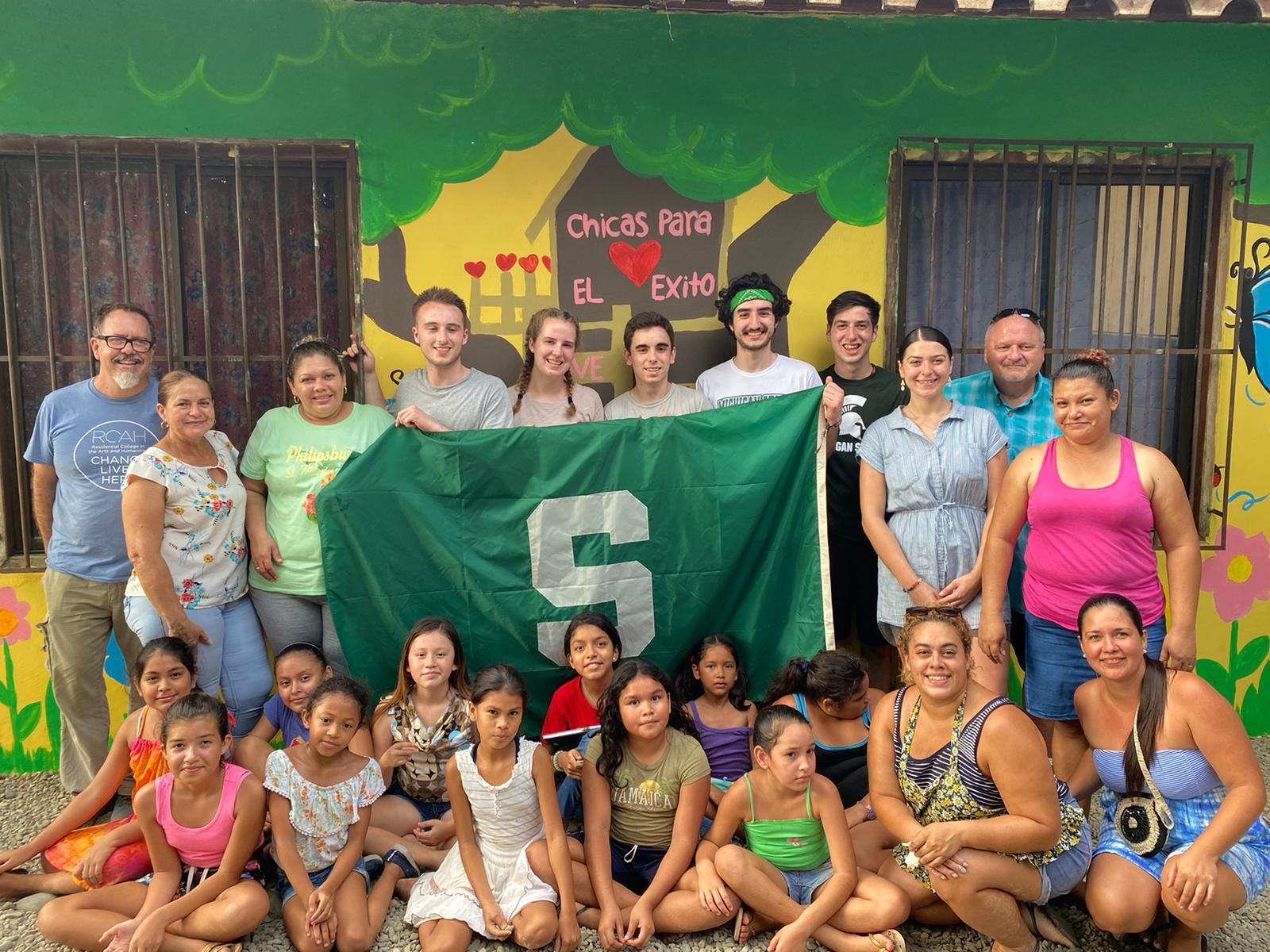Vincent Delgado is a senior academic specialist and director of the Program on Sustainability in Costa Rica in the Residential College in the Arts and Humanities.
Since 2013, students in Michigan State University’s Residential College in the Arts and Humanities, or RCAH, and the College of Engineering have worked collaboratively on community-based design projects under the direction of RCAH’s Delgado and First-Year Engineering CoRe Experience Director Timothy J. Hinds.
The success of those efforts expanded to Costa Rica in 2018, coupled with the RCAH Program on Sustainability in Costa Rica that Delgado directs. Nearly 600 students have participated internationally in the past 10 years, primarily guided by Delgado and Hinds. The RCAH-College of Engineering collaboration has led to the creation of a joint academic minor in Design Justice. Here, Delgado writes about studying abroad at MSU, and the impact it has on students and in communities.
In 2018, RCAH and College of Engineering students began collaborating with the Costa Rica community of Hone Creek and stakeholders with the Girls for Success Program, a school in Costa Rica. The first round focused on designs to improve the school. Since then, students in study abroad and taking courses have been working to assist programs throughout the area.
While stakeholders were fundraising around $85,000 for the land and structure, students in RCAH’s Sustainability and Civic Engagement community-participatory semester in Costa Rica researched programming and outcomes for the future space. Separately, engineering and RCAH students designed new educational technologies and renovations on the current facility.
In Territorio Autonomo Indigena Bribri, engineering students collaborated with ADITIBRI, which is essentially the indigenous territory's governing council — Asociacion de Desarrollo Integral de Territorio Indigena Bribri Talamanca — to come up with a variety of initial designs. In the meantime, RCAH and engineering students in the course Design for the Common Good developed designs for interior spaces that engaged with Bribri culture, history and environment.
These are just a few of a variety of U.S. domestic and international projects that have been developed via engineering and RCAH student-community collaborations in the past 15 years.
Most recently, those courses and projects became a critical piece of the new RCAH/College of Engineering Design Justice Minor, which prepares students to address the challenges of global conflict, globalization, climate change and sustainability and how to design for justice and human sustainability.

Past Costa Rica projects have included a lookout platform in San Luis de Monteverde; an app that connects consumers to food produced through permaculture, regenerative and other forms of sustainable agriculture in the Tilaran Mountains; solar, aquaponics, forest reserve trail infrastructure and a children’s environmental play space called the Magic of Water in Palmichal de Acosta; and a community playground and greenhouse in Bribri Territory.
Past domestic projects have included Art@Work at Peckham, Inc. in Lansing; Clifford the Big Red Truck with Paul Robeson Malcolm X Academy in Detroit; a community sculpture project on Saginaw Highway in Lansing called Project RestART, and many others.
In Costa Rica, students are currently co-generating plans for a major art installation in Monteverde by the region’s youth. The project’s name is “[un]liberated imaginaries.”
Another key aspect is the financial support, design, and construction of projects by College of Engineering industrial sponsors. These successes could not happen without them.
There are several important project elements that could only be achieved at a place like MSU.
First, the projects were developed through a network of community relationships maintained by an RCAH faculty member permanently posted to run RCAH’s Program on Sustainability in Costa Rica. The consistent presence increases our engagement with communities and increases student access by decreasing the price of student participation in the projects — reflecting MSU land grant and DEI values.
Second, these projects reflect an important commitment to both community engagement and interdisciplinary learning, design and research on the part of both colleges. Again, community engagement and practical interdisciplinary project work reflect our land grant mission.
Finally, this work also focuses critically on important aspects of social justice and affective positive social change with communities and within the university — in line with MSU’s diversity, equity and inclusion values.
